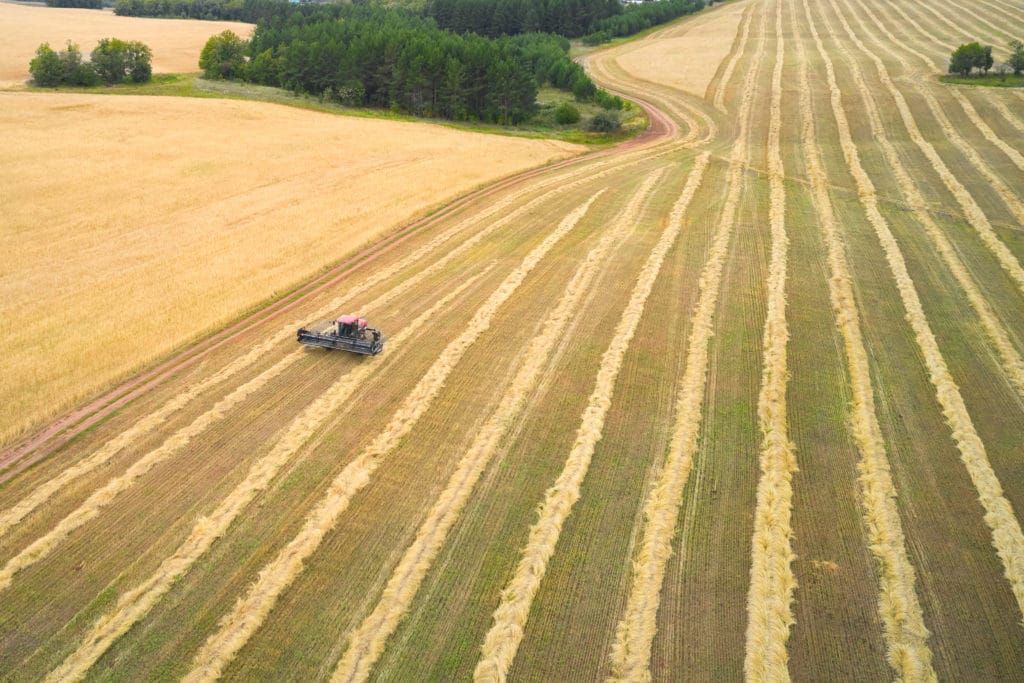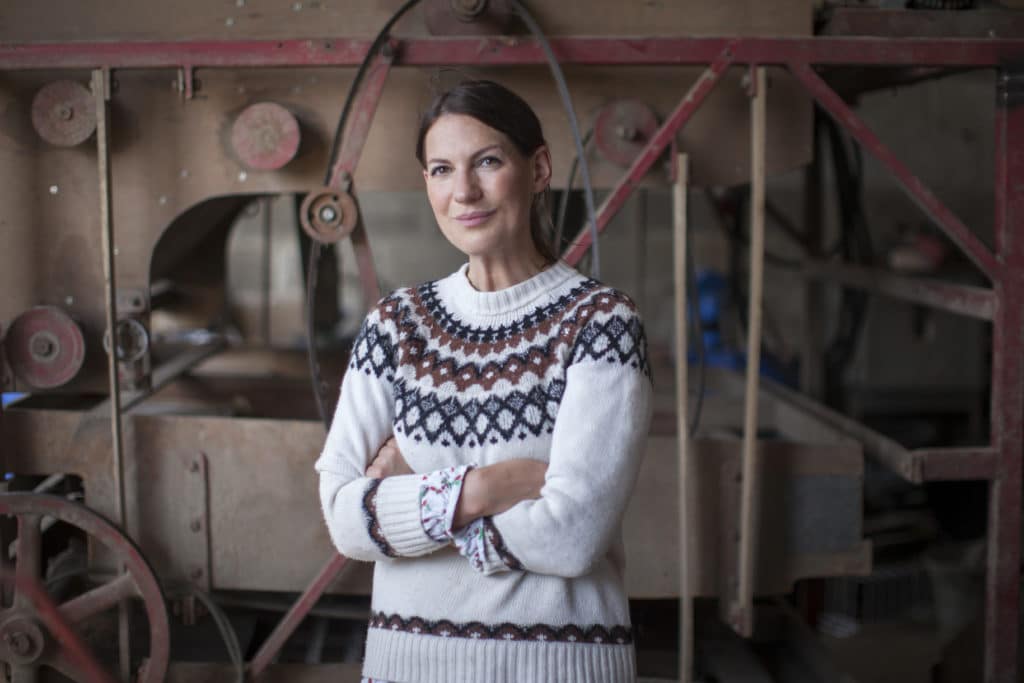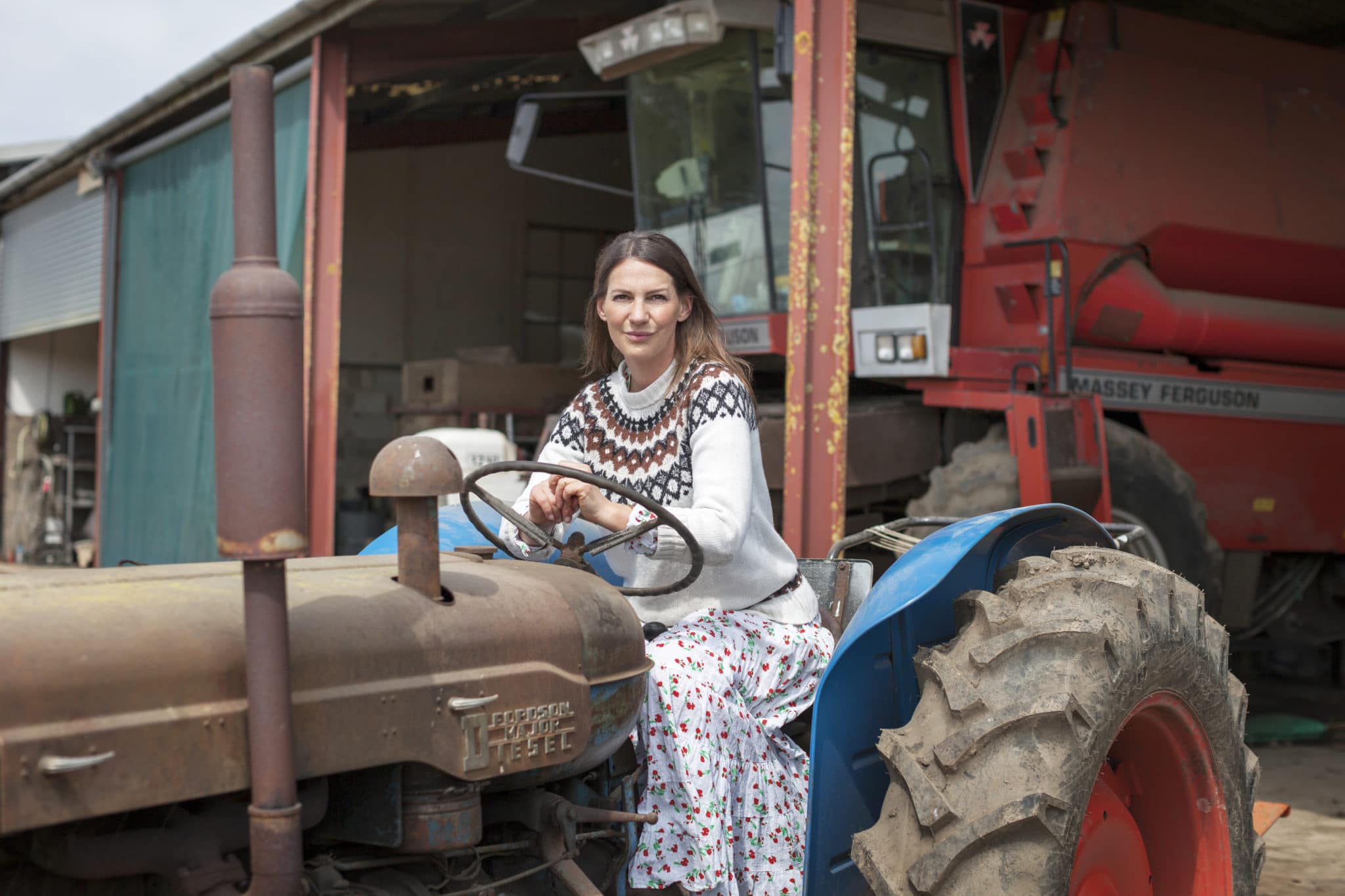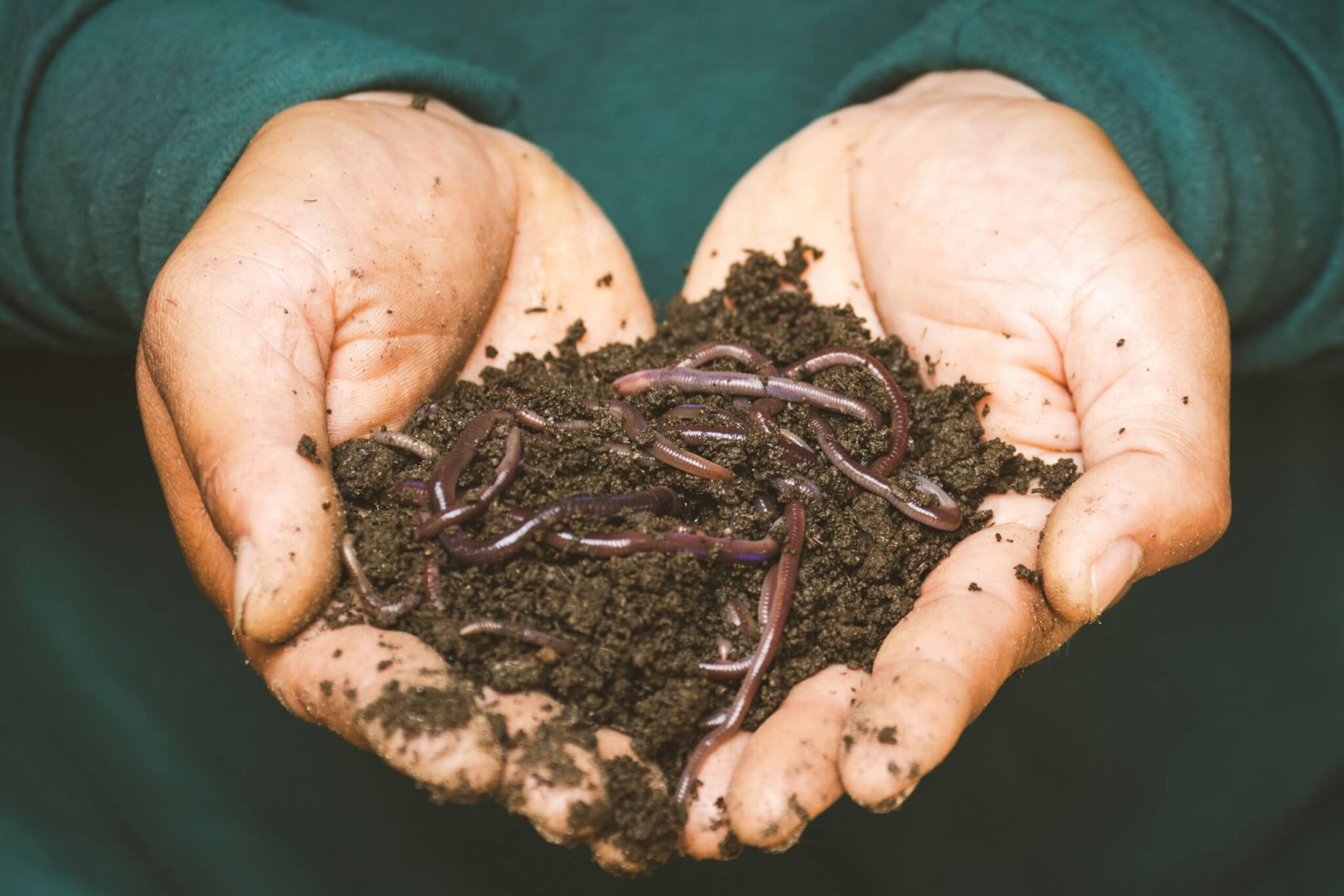Nina Pullman (NP): Farming now regularly makes national headlines, and farmers are often defensive about their jobs. Is this what you found when researching and interviewing for your new book, Rooted?
Sarah Langford (SL): It’s an identity job. So when you attack farming, you are criticising who they are as people and their moral decisions. I totally understand why farmers are defensive about it. Because for Charlie, my uncle, who is 60 and has been doing this since he was 23; he had a mission. And his mission was to use all the equipment possible to produce as much food as possible. That’s what his dad had done, and that is what the government were encouraging him to do. I don’t think people now really understand what it was like. People turned up with clipboards to say: ‘Why have you only got five cows in this field? You could get 50 cows on here.’
You don’t have a financial reward for it, you don’t own the land: all you’ve got is the conviction is that you’ve fed people in a way that was good.
NP: What’s changed?
SL: What we are asking him to do now is to look back at his entire life’s work and say not only was it morally wrong, but he did it in a way that caused really serious harm. Now the reality is, that’s true. There are multiple devastating unintended consequences from that kind of farming. There’s a lack of empathy that’s shown to people like him, when we’re asking them basically to get rid of their legacy. This is why I wanted to write Rooted, to show there is a human cost to this kind of farming. There’s an ecological cost and a financial cost, but what we’ve asked farmers to do has impacted on them really personally: never going on holiday, never having time off, living on the breadline with no assurity. And, sure, there are some big arable farmers who make lots of money. But nearly half of all farmers don’t make any profit without subsidies. So you don’t have a financial reward for it, you don’t own the land: all you’ve got is the conviction is that you’ve fed people in a way that was good. And this asks us to take that away from them.
I am massively indebted to all the farmers who shared their stories with me. Because this is not about how big their yields are, or how many bees and butterflies they have. I have a chapter on some intensive pig farmers who in five years transitioned to a calf-at-foot dairy and mixed farming system, but that process had a huge personal impact.
NP: One of the things that really stood out to me in your book was the emotion in the pages. There’s a lot of books, papers and conferences about farming, but it’s not very often you come across something that is emotional like that. Why is that such an important part of the story?
SL: It’s really sad. It’s not the people, it’s the system that has asked people to do things that have hurt them. Whether it’s shooting bull calves, working every hour, spending days on a tractor with no one to talk to. We’ve asked people to hurt themselves so we can have cheap food. The villainisation of farmers presented a caricature that was so flattened and inadequate. Maybe it’s because I spent ten years as a criminal defence barrister, and my job was to really give a voice to the people who were also reduced to stereotype.

NP: Do you see some parallels with two groups of people to be defended?
SL: Massive parallels. When you walk into court and your client is literally in a glass box at the back, and all the jury look over and make their judgment. And then they get told he’s been accused of rape, or burglary. And it’s only when you get to the defence case that their eyes look at you and then at him, and start to change. And we haven’t had the defence case for farming, and I think I wanted to write that. I’m not saying that everything they’ve done is right, at all, but there was a reason they did it. And it was really brave to go against the grain.
NP: Regenerative has been a bridge to allow more farmers into sustainable farming. But now we’re getting big brands doing it like McCain or McDonald’s using the term. Have you got any worries about that?
SL: My sister works in charity and taught me long ago that if you care about people’s pure intentions, you’re never going to get anything done. And if you have ‘hierarchies of goodness’, no one will get through the gates. And sometimes, if you want change to happen, it doesn’t matter why people do it. So a little bit of me is like I don’t care if it’s big ag doing it.
NP: The thing is how do you know they’re doing it? For someone just trying to buy and eat the right thing, it becomes really difficult.
SL: That’s where labelling comes in. I remember Henry [Dimbleby] telling me that no one reads the labels and the only thing that works is the Union Jack, but until there is some kind of system that allows people to really inform themselves on it. And I do understand – I’ve got two kids, it’s really hard when out shopping to pick up everything and read the back. But I think a combination of labelling alongside, and this is a Utopian dream, restrictions on imports so that never will we have on our shelves food that has been produced in ways that are illegal here.
If you have ‘hierarchies of goodness’, no one will get through the gates.
There will definitely be people who are using the word regenerative without being regenerative. What I think is more important is this desire to become regenerative is motivating people to change. That’s so much better than a situation when we’re trying to persuade people to become regenerative and all of those big businesses not listening. The fact that they’re feeling the pressure to change their systems is so much more significant. Now they’re saying ‘this is a train and we need to be on it’.
NP: How has the attitude to sustainable farming changed?
SL: The organic movement created a silo. And in a way I kind of think they had to, because at that point it was so intensive on the other side that they had to have an extreme reaction back to it. It was the start of a movement. It is hard to underestimate how, in the 80s and 90s, how deeply cynical the mainstream was against organic. Now, if you look at the figures, organic conversion has gone up by over 30 per cent which is gigantic; it’s a massive step change. The finances are driving it to a degree, but there’s an attitudinal change in the mainstream. If you read Farmers Weekly now, it’s a totally different magazine to what it was two years ago. Organic farmers are now seen as researchers who have tested this stuff.

NP: Henry Dimbleby’s proposed National Food Strategy recommendations have been largely ignored. What do you think is next?
SL: I do think the general view that we shouldn’t wait for government to solve this is right. I also think, much like plastic bags and smoking inside, laws can have dramatic effects quickly. And in terms of the sugar and salt tax, that’s a no-brainer for me. It’s very hard to have these discussions and not come to the conclusion that a benign dictatorship is the only way forward. I know that, from being at the raw end of the family and criminal bar, how children eat in the first five years dictates the rest of their health thereafter and it’s absolutely in the government’s interest to pay for that nutrition.
NP: Why don’t they recognise that?
SL: It’s really hard to put 15-year change on a poster. The election cycle of five years means that we demand our politicians to have shown us what they’ve done. And that means that we get quick fixes, that are dramatic, and can be reduced to a one liner. So there is a tension right at the heart of this. And that’s why – while I think we should look to our government to bring in laws that are easy own goals like a salt and sugar tax, or subsidising fruit and vegetables for those on the lowest income, which everybody agrees on – it has to come from a social and lobbyist movement, environmental and food groups; all of those people should be linked up.
Farming is an identity job. When you attack farming, you are criticising who they are as people and their moral decisions.
NP: How much does it matter about who is doing the farming, as well as how they’re farming? Thinking about women in farming, new entrants, or people of colour.
SL: The Sustainable Food Trust’s new report talks about why mixed farming will require upskilling, for example arable farmers who are reintroducing livestock. To which I say: no it won’t. Because what you can do is open the opportunity up to landless farmers. Agricultural universities are full, farming is having a huge revival; there are lots of people who are landless, who want to get into it but cannot afford to. If you create a mixed farming enterprise like this, we have a lovely guy with a flock of ewes that he grazes our land and other farmers’ land with. If you translate that to chicken enterprises, grains, all sorts, it means that the land has people on it again, communicating and sharing ideas. I think that could be a transformative way to get landless farmers back onto the land.
NP: How are these natural capital deals being done already when there is no agreed method of measuring soil carbon?
SL: That’s what most people are really wary about. My husband’s natural capital platform is very much at pilot stage and they’re the only ones doing core soil testing.
NP: How can others trade based on no known figures?
SL: There are various sonar ways of doing it. It’s such an unknown. But it is happening now. People are already getting money in their accounts for sequestering carbon. So I want desperately for the small guys to be on it, because I think there’s a real risk they won’t. And we can’t allow that to happen. It needs to be replacing lost subsidies and we need to be getting this money into farmers’ pockets not big ag.
NP: No one is really talking about the role of big agribusiness who have spent the last few decades selling stuff to farmers, and then selling stuff so they can use that stuff. Why aren’t more people angry about that?
SL: That’s why I wanted to write Rooted, because I wanted to explain how deeply exploitive the system is to the farmers, not just to the environment. Once you’ve bought this high yielding, high input wheat, you have to use all the inputs, or it won’t grow. And then you’ve spent so much money that you’re locked into it. Why regenerative farming is so liberating is because it breaks that grip.
Rooted: Stories of Life, Land and a Farming Revolution by Sarah Langford (£16.99, Viking) is out now.









0 Comments